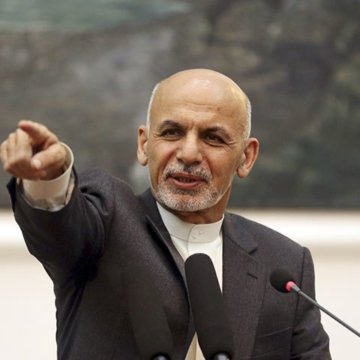- About
- Topics
- Picks
- Audio
- Story
- In-Depth
- Opinion
- News
- Donate
- Signup for our newsletterOur Editors' Best Picks.Send
Read, Debate: Engage.
| located: | Afghanistan |
|---|---|
| editor: | Shadi Khan Saif |
Historically speaking, the month of September has many unforgettable episodes in the turbulent tale of war and bloodshed in Afghanistan, still shaping the destiny of this war-riddled country. The Afghans’ aspiration for peace continues to be elusive amid ragging international terrorism, poverty and internal political wrangling for over four decades now.
It was on September 27, 1996 when the Taliban forces captured the capital and brutally tortured, castrated and executed former president Mohammad Najibullah, declaring their rule over the whole country, lasting nearly five years. This brutal shift of forces came in conjunction with a civil war that began when an Afghan president, Noor Mohammad Taraki, was murdered by his opposition on 14 September 1979.
Subsequent events paved the way for the Soviets first, later for the American invasion, and a continuation of chaos and bloodbaths from there onwards.
In a way, the country’s transition from a monarchy (Mohammad Zaher Shah was the last Afghan King who ruled from 1933 to 1973), to a republic has been disrupted along the way. As a result, the rules of the game have remained elusive, bent in favour of corruption and inequality; a tribal mentality under one pretext or another that remains rife in the rich and powerful, a fraction of Afghanistan's population.
In modern-day Afghanistan, the Taliban’s armed rebellion against the West-backed Kabul government enters its 17th year. In all these years, civilian lives have been lost by the hundreds of thousands, caught between the conflicting parties. Equally, billions of dollars of taxpayers money from different parts of the world have been spent on fighting this insurgency while trying to create a chance for a better life for the Afghans. This all could have been avoided had the Afghans learnt from the past, and embraced peace rather than settling differences violently.
The month of September last year was somehow different.
Current Afghan President, Mohammad Ashraf Ghani, inked a landmark peace deal with former rebel leader, Gulbuddin Hekmatyar, on September 29, 2016 in a bid to change the course of history and pave way for peaceful resolution to the crisis. The return of Hekmatyar to the political arena has angered many, particularly those who suffered from his role in the civil war in the 1990s. But nevertheless, he remains a popular political figure that needs to be appreciated within the spheres of fair rules of the game.
The very same avenues need to be offered to the reconcilable elements within the Taliban to end to the vicious cycle of violence and misery of the Afghan nation. History cannot be re-written, but the current Afghan leadership can at least ensure its on the right side of history.
